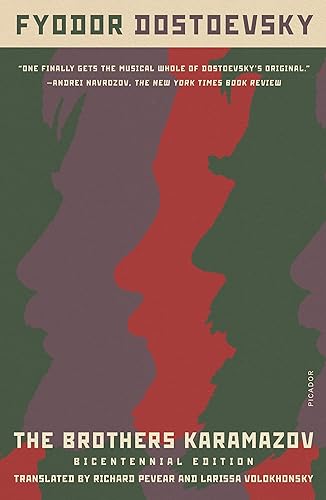
Deep into the Russian soul, “The Brothers Karamazov” unveils the intricacies of human nature, morality, and faith. Penned by Fyodor Dostoevsky, this narrative elegantly dissects familial ties, spiritual dilemmas, and the psyche’s labyrinth.
A few paramount reasons to delve into this masterpiece:
Exploration of Morality and Existence: Dostoevsky doesn’t shy away from challenging questions. From the existence of God to the essence of evil, the novel delves deep, pushing readers to reflect on their convictions.
Rich Character Development: From the devout Alyosha to the cynical Ivan, each Karamazov brother represents a unique facet of humanity. Their interactions and internal struggles offer readers an intimate look into varied human psyches.
Stunning Prose and Narration: Dostoevsky’s writing is, without doubt, a tapestry of emotions and thoughts. His vivid descriptions and dialogues pull readers into 19th-century Russia, making them privy to its culture, landscapes, and ethos.
Insight into Russian Culture: Beyond the tale of the Karamazov family, the book offers a panorama of Russian society, shedding light on its values, beliefs, and social dynamics.
Considering its profound exploration of life’s big questions, coupled with its intricate character sketches, “The Brothers Karamazov” remains an indispensable read. Irrespective of one’s background or beliefs, the novel offers insights that resonate across cultures and epochs.
Mistake to note: Some readers often misinterpret “ethos” with “pathos,” but in this context, it refers to the spirit or character of a culture or community.









